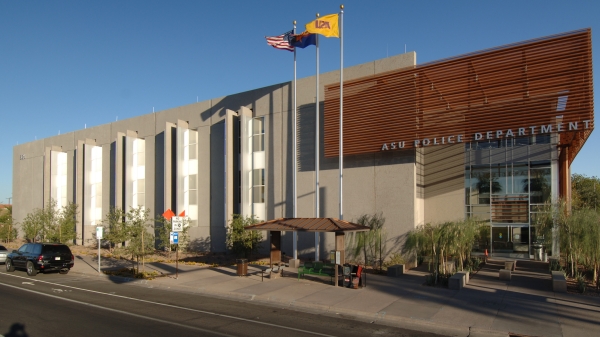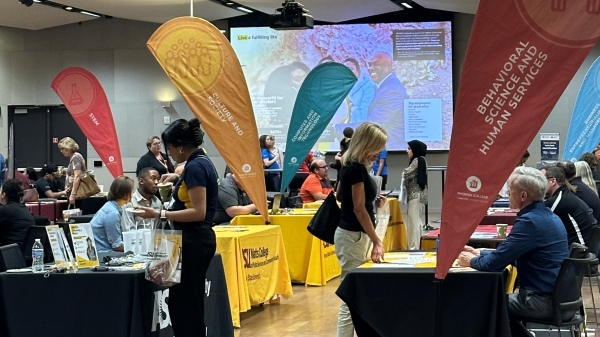Biodesign Institute researcher a pioneer in personalized medicine field

Joshua L. LaBaer, interim executive director of the Biodesign Institute at Arizona State University
Editor’s Note: This story is one in a series of profiles of individuals being honored as part of the ASU Alumni Association’s 2017 Founders’ Day celebration on March 16. Visit the Alumni Association’s website to read the entire series.
Joshua L. LaBaer is being honored at Founders’ Day with the Faculty Research Achievement Award for his groundbreaking work in the emerging field of personalized medicine. He is the interim executive director of the Biodesign Institute at Arizona State University, and director of the Virginia G. Piper Center for Personalized Diagnostics at the institute. He also is a professor in the School of Molecular Science at ASU and an adjunct professor of medicine in the Mayo Clinic College of Medicine.
His efforts involve the discovery and validation of biomarkers — unique molecular fingerprints of disease — that can provide early warning for those at risk of major illnesses, including cancer and diabetes. Much of his work concerns proteomics, a branch of biotechnology concerned with analyzing the structure, function and interactions of the proteins produced by the genes of cells, tissues or organisms. His research is recognized as extremely relevant and impactful for a number of chronic health conditions, with direct application from bench to bedside.
LaBaer was recruited to the ASU Biodesign Institute as the first Piper Chair in Personalized Medicine in 2009. His group, the Virginia G. Piper Center for Personalized Diagnostics, invented a novel protein microarray technology, Nucleic Acid Programmable Protein Array, which has been used widely for biomedical research. Its use has led a panel of 28 autoantibody biomarkers that are being commercialized by Provista Diagnostics to aid in the early diagnosis of breast cancer.
With nearly 170 publications of his own in various peer-reviewed journals, LaBaer also is the co-author of three books on proteomics. He is a former member of the National Cancer Institute’s Board of Scientific Advisors and serves as chair of the National Cancer Institute’s Early Detection Research Network Executive Committee and co-chair of its steering committee. He is the president of the U.S. Human Proteome Organization and chaired the organization’s 2015 conference, which was held near ASU’s Tempe campus. He was honored by the Phoenix Business Journal as a “Health Care Hero” in 2011 and is a 2014-18 Flinn Foundation Awardee.
Although he is known as a leader in the field of proteomic and biomarker research, his professional colleagues describe him as always seeking out novel perspectives on his work.
“Despite his international reputation, he is quite modest and always looking for advice on different issues,” said Jonathan Leighton, professor and vice chair of the Department of Medicine at the Mayo Clinic Arizona. “He is open to new ideas and willing to listen.”
LaBaer earned his medical degree and a doctorate in biochemistry and biophysics from the University of California, San Francisco. He is a board certified physician in internal medicine and medical oncology and was an instructor and clinical fellow in medicine at Harvard Medical School.
More University news

ASU partners on first-of-its-kind $90M NSF research hub for transformational learning, education research
Access to better data leads to better research. When it comes to data about personalized learning, the more researchers know…

ASU Police Department honors outstanding service with annual awards
By Jason Weber, ASU Police Department The Arizona State University Police Department recognized department members for their…

ASU Academic Alliances, Maricopa Community Colleges boost student mobility between institutions
The Maricopa Community Colleges stand as one of the leading sources of transfer students to Arizona State University, with ASU…